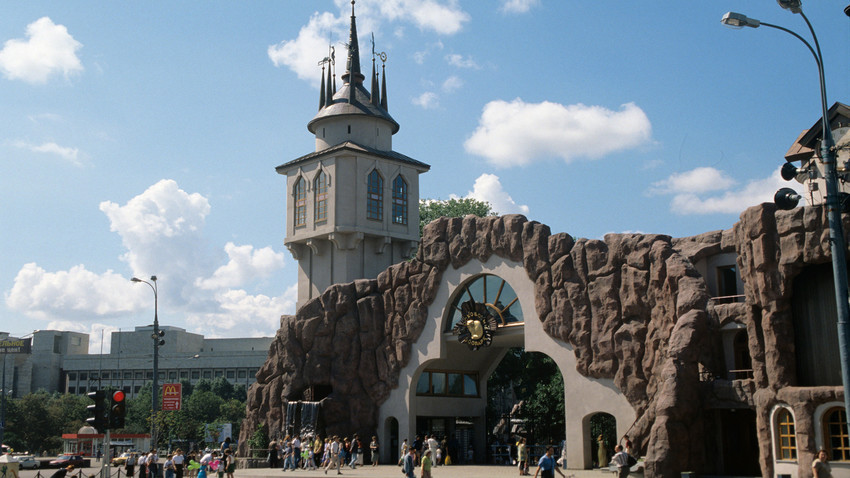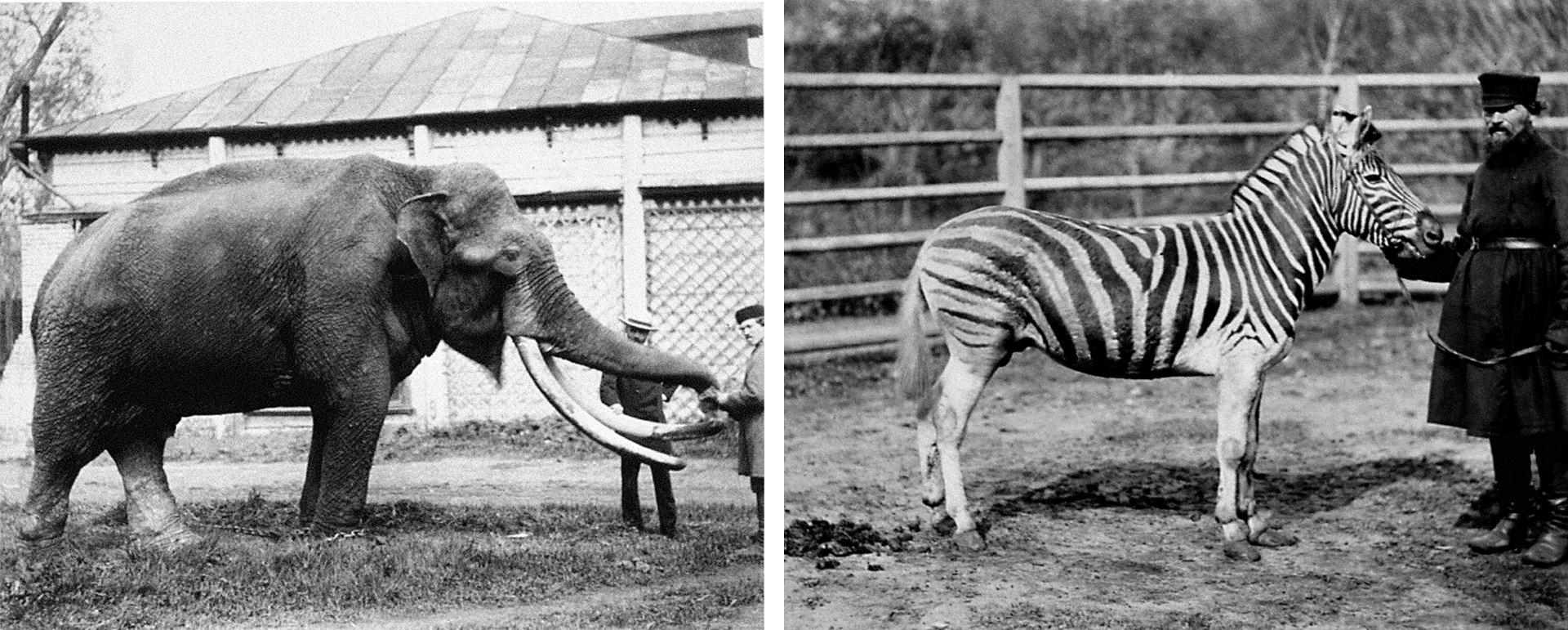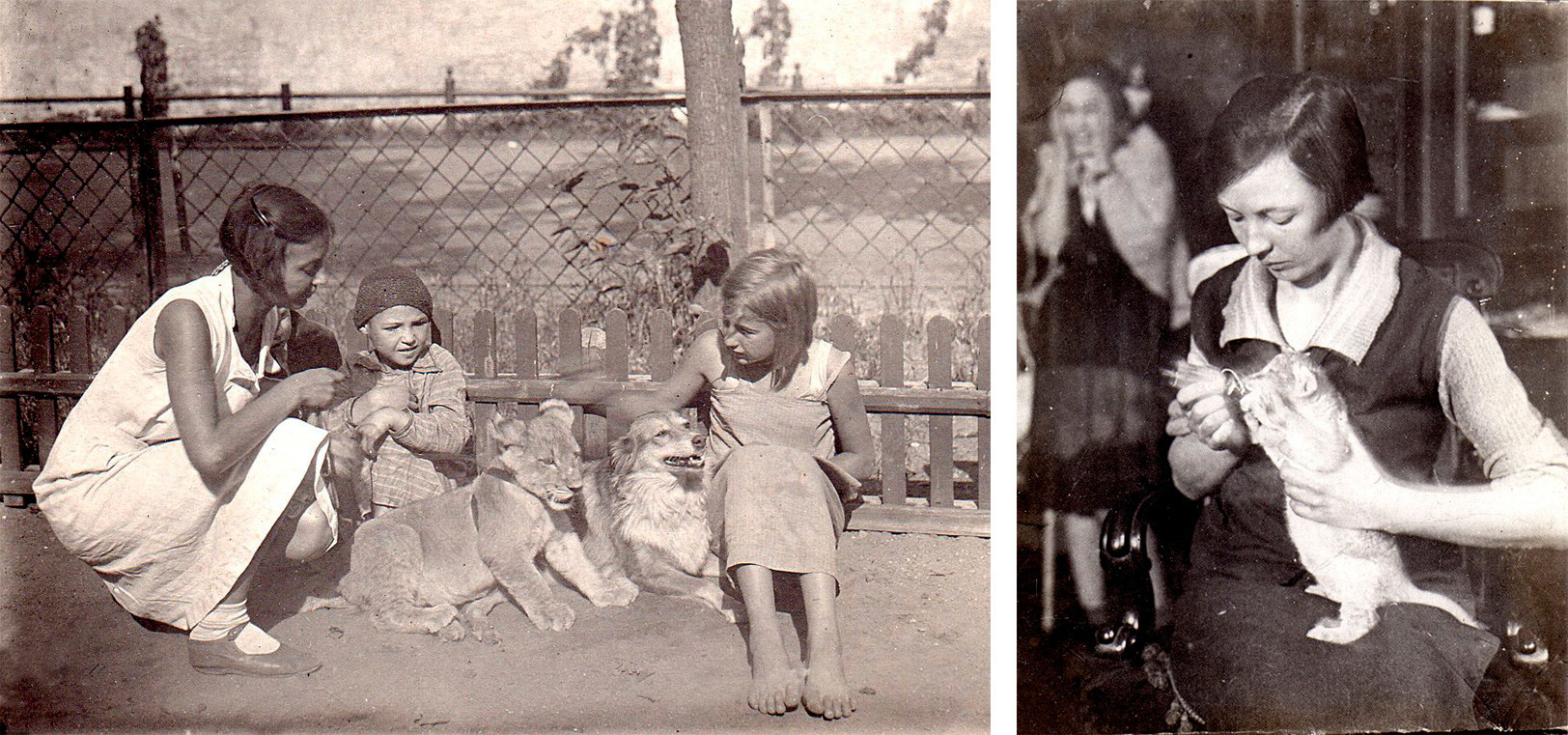Young women who fancy gorillas, and 4 other strange stories from Moscow Zoo

1. The world’s first with low temperatures
The Moscow Zoo is Russia’s largest and oldest. Founded in 1864, it’s also among Europe’s oldest. One of its founders called the new zoo “an open-air museum,” and it was the world’s first zoo facing the coldest temperatures in winter, which of course are characteristic for Russia.

An Asian elephant was donated by Tsar Alexander II, and a zebra was received from an Egyptian ruler
moscowzoo.ruIn the beginning, it was home to only 300 animals (today it’s about 8,000). Some animals came to the zoo as gifts from famous Russians or foreigners. An Asian elephant was donated by Tsar Alexander II, and a zebra was received from an Egyptian ruler.
In the turmoil of the 1917 Revolution and the Civil War almost all the animals perished, but later the zoo’s population was restored. In 1919, the Moscow Zoo was nationalized.
2. Bizarre female interest in gorillas
In the late 1920s, the zoo was the target of a prank. There was a bestselling novel, The Island of Gorriloids, which told the story of a formidable army created by cross-breeding women with gorillas. Capitalizing on the novel’s success, a Moscow newspaper published an ad offering ladies the chance to have intercourse with a gorilla at the zoo.

In the late 1920s, the zoo was the target of a prank
Alexander Sencov/TASSThe head of the gorilla cages at the zoo was reportedly bombarded with requests, and some women even showed up at the zoo in the hopes of fulfilling their fantasy. The zoo’s director, an old Bolshevik, wanted to publish a retraction, but he was told that it would only attract more undesirable public attention to the story.
3. Saving a lion cub
In 1935, one of the lionesses refused to feed one of her cubs. So, a zoo employee, Vera

Vera Chaplina took the cub to her communal apartment where the little lion stayed for a while
Public domainWhen a year later the lion was to be returned to the zoo it refused to be separated from the dog, so they also had to take it to the zoo, where the two animals lived happily ever after.
The Christian Science Monitor even published an article, “Lions and lambs in Moscow,” about this strange situation.
4. Working under bombs
During World War II, despite the hardships and the Nazi air raids, the zoo did not close. They say that more than five million people visited it then, even though some of the animals had been evacuated to the city of Sverdlovsk in the Urals; elephants and other big mammals, as well as almost all the predators, remained in Moscow

During World War II, despite the hardships and the Nazi air raids, the zoo did not close
Anatoliy Garanin/Sputnik5. Maverick penguin
Not all the animals appreciated the zoo’s hospitality. There is a legend about a penguin that regularly escaped from the zoo, and which apparently happened several times in 1972

There is a legend about a penguin that regularly escaped from the zoo
Minkevich/Sputnik
If using any of Russia Beyond's content, partly or in full, always provide an active hyperlink to the original material.
Subscribe
to our newsletter!
Get the week's best stories straight to your inbox